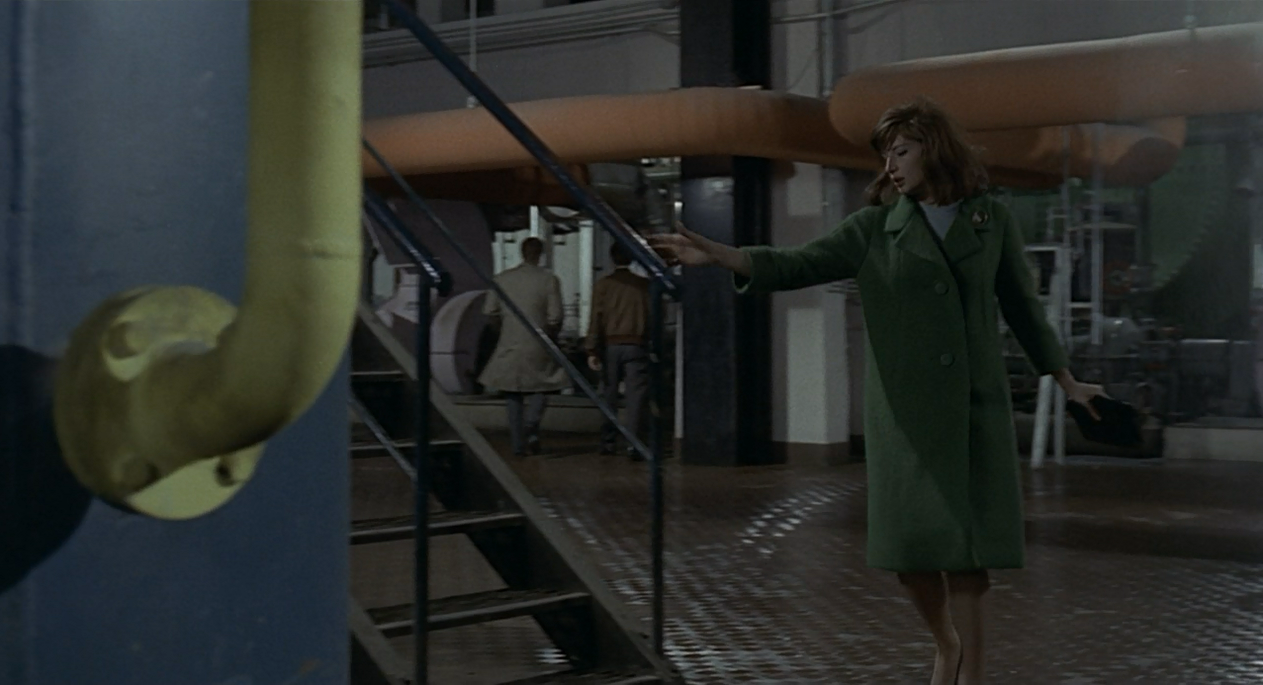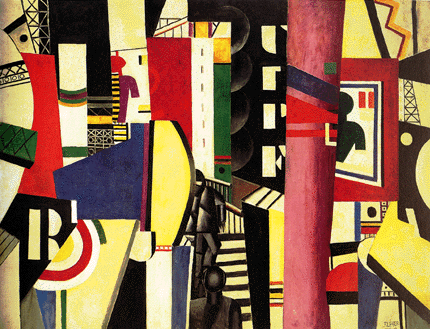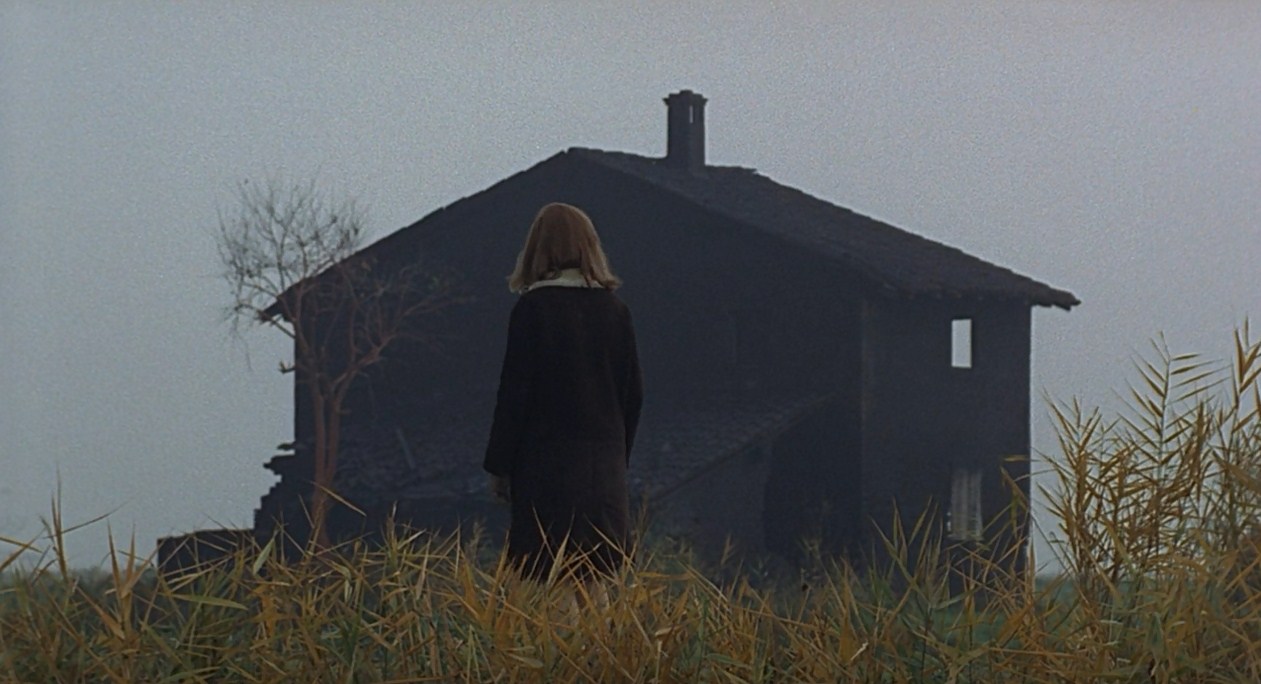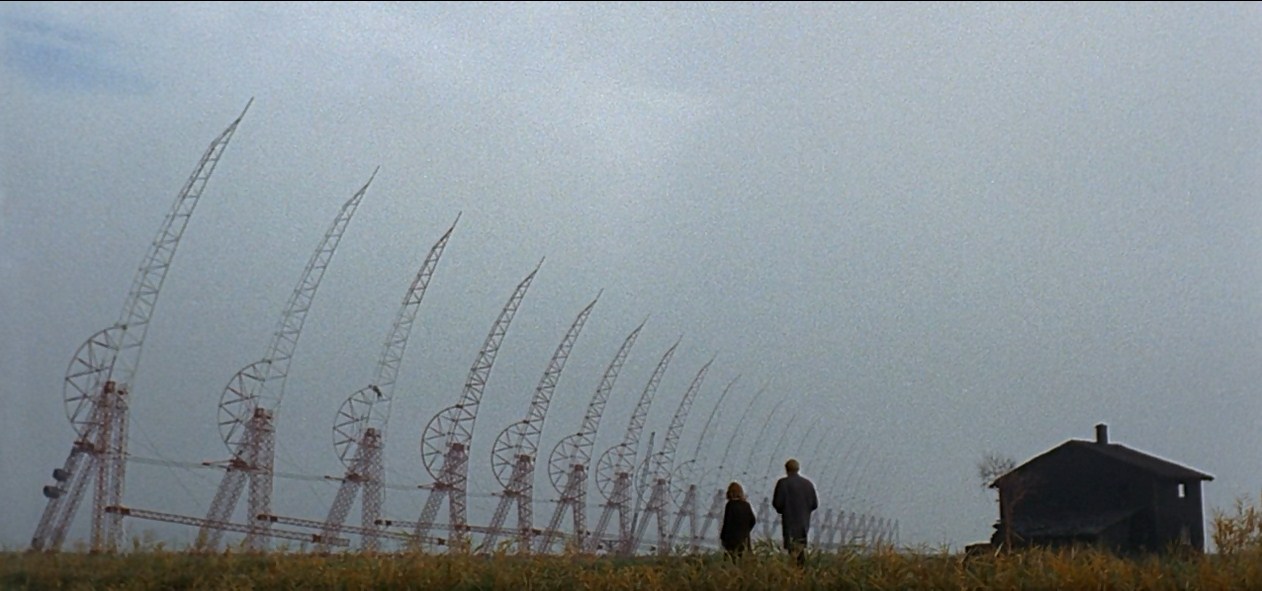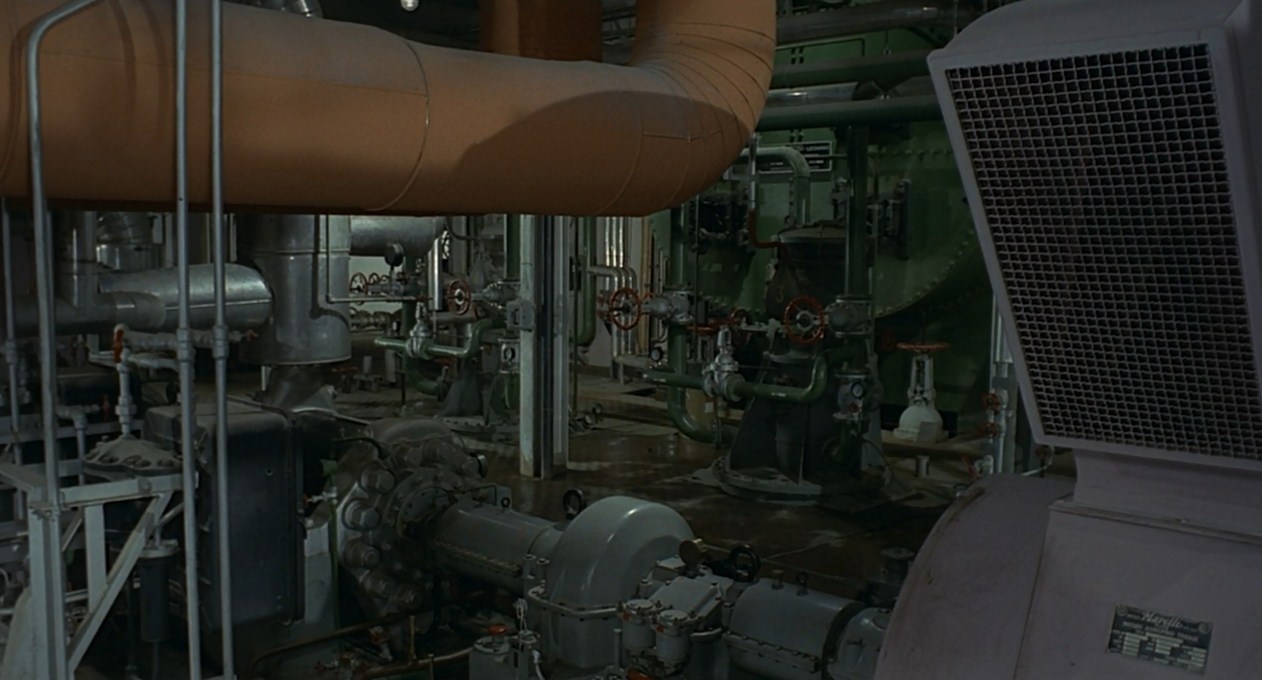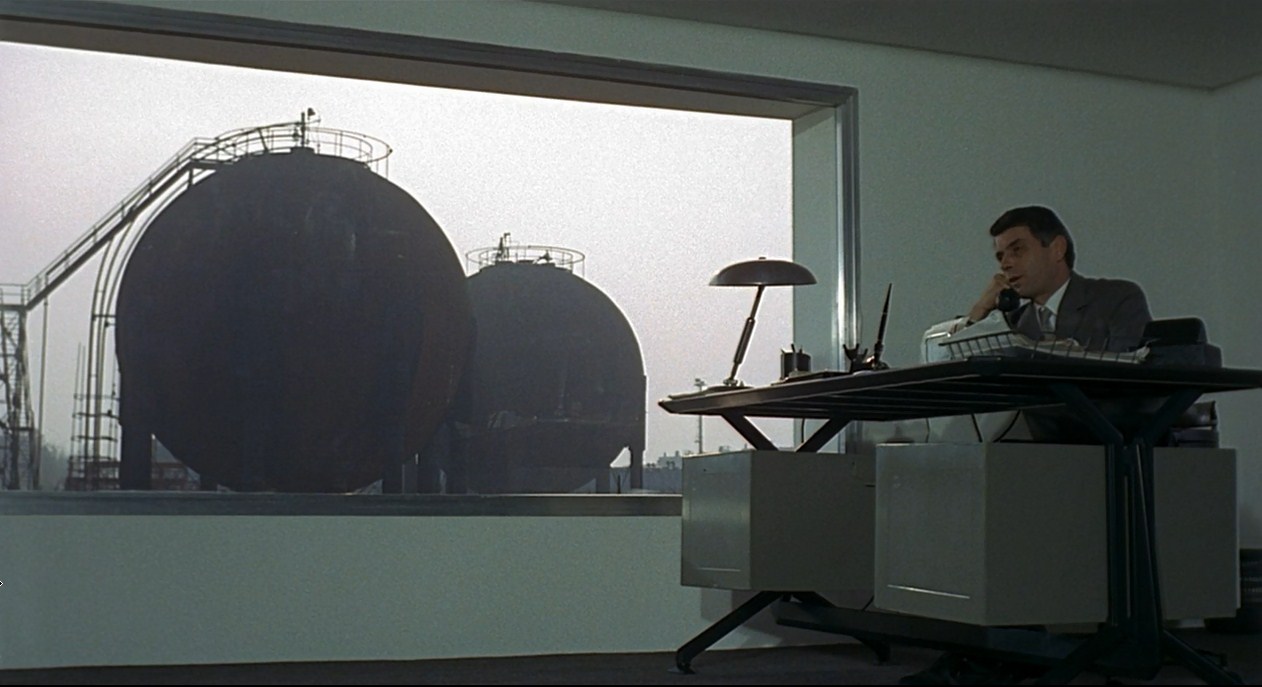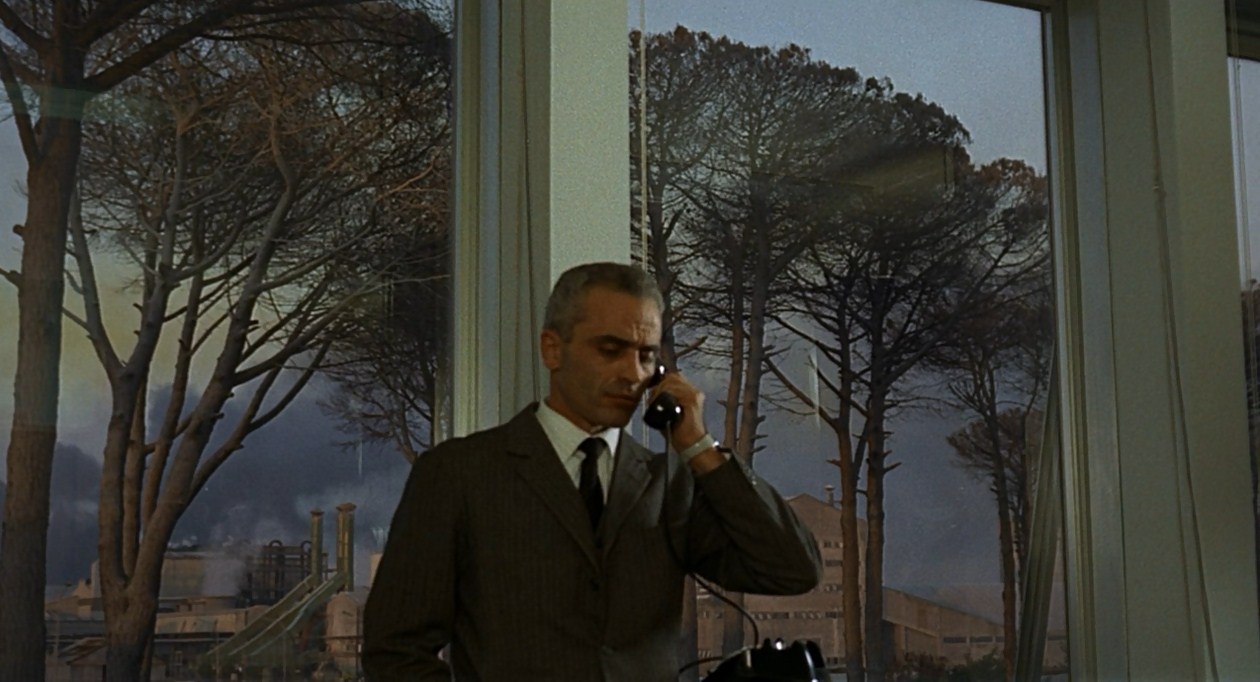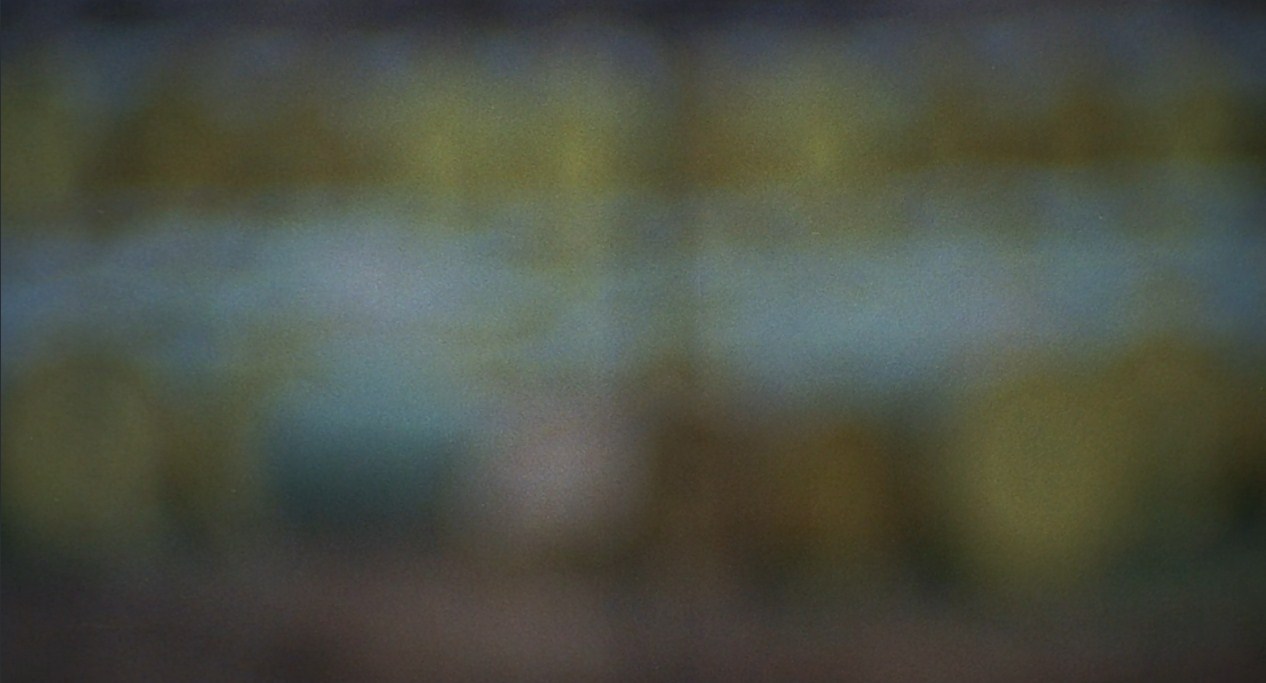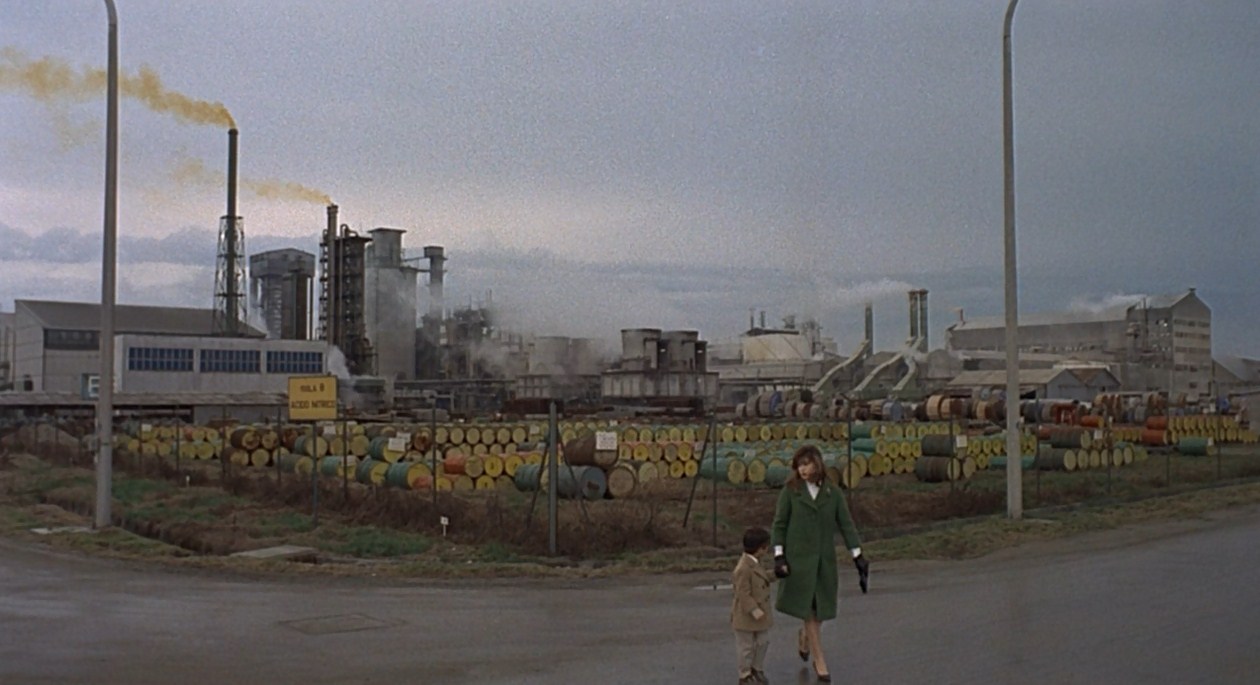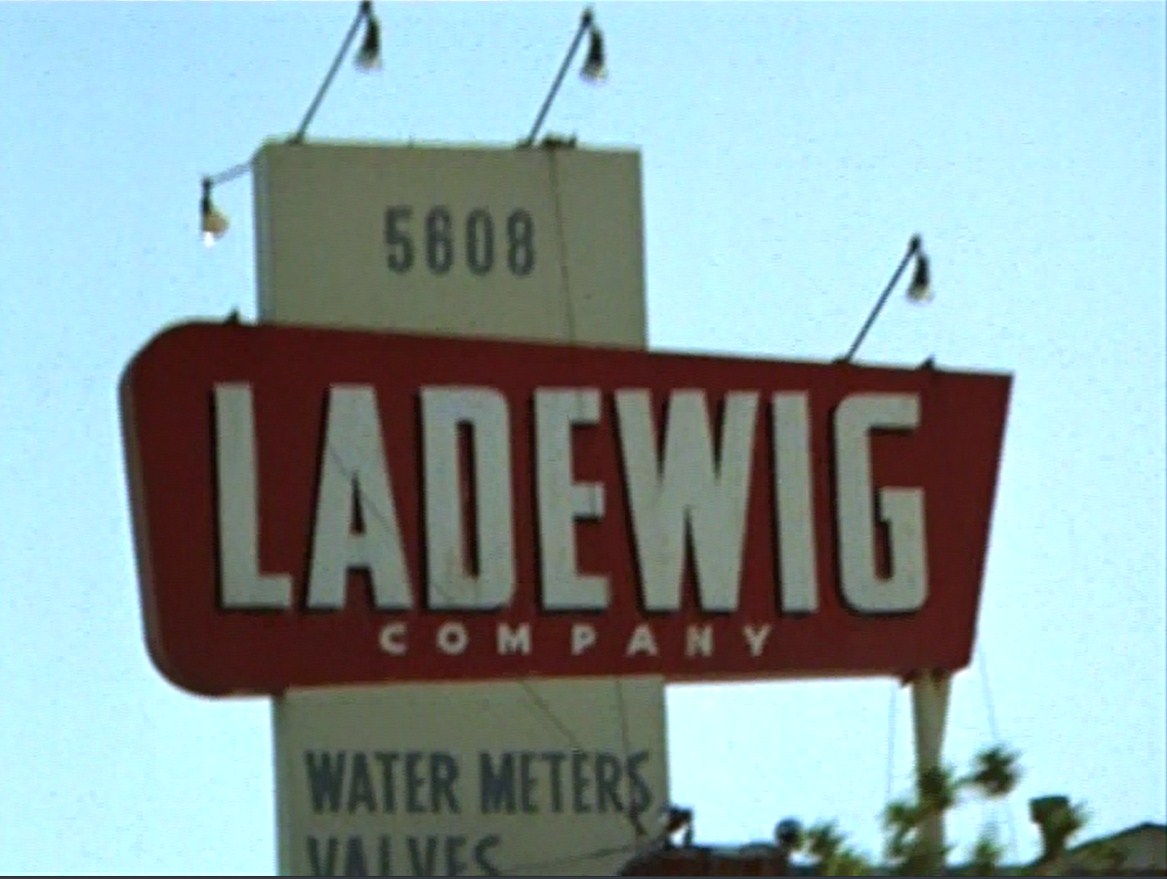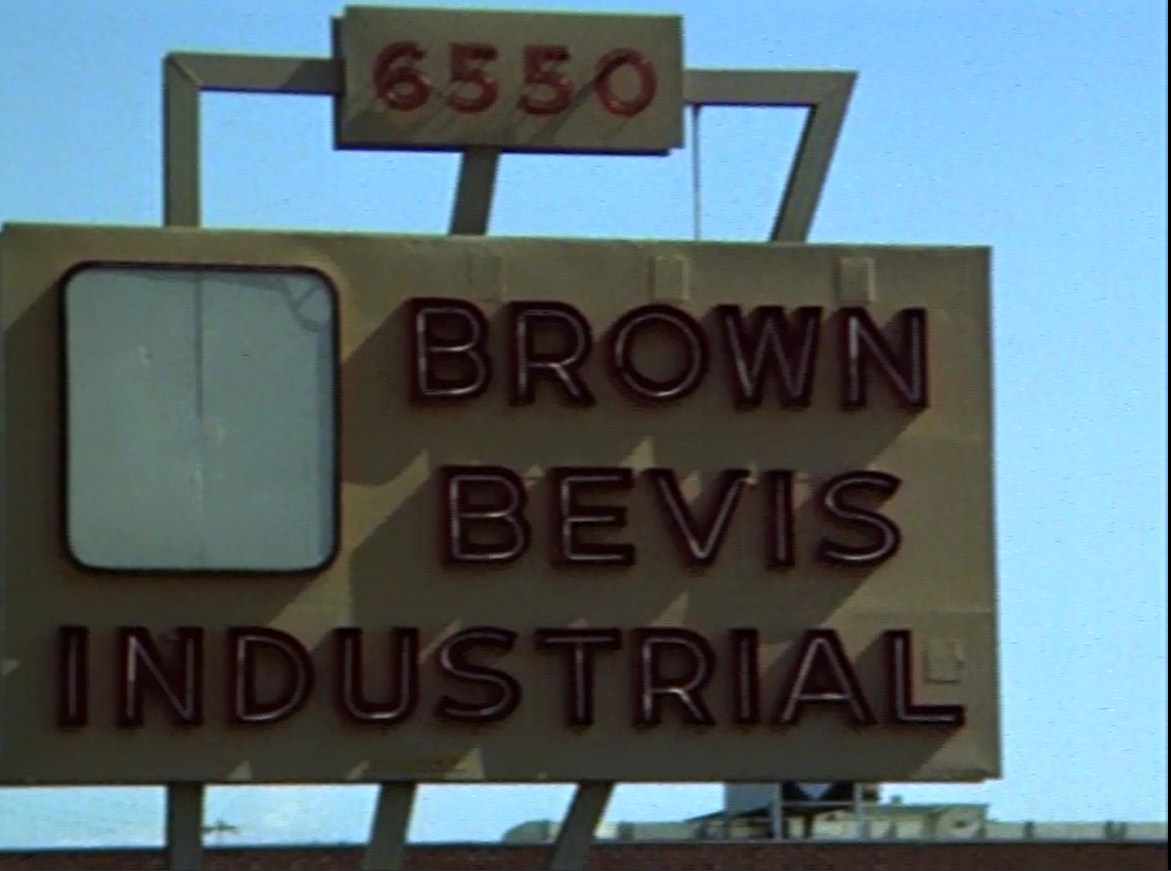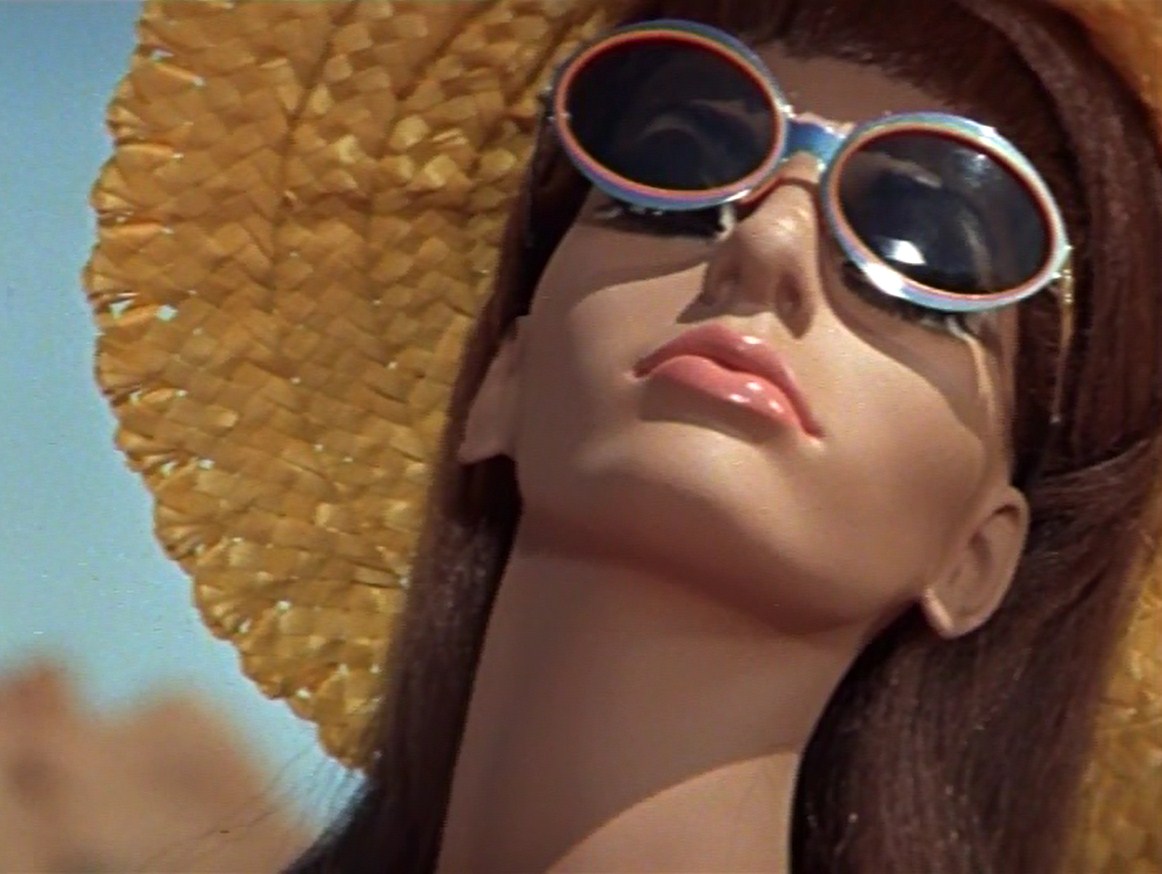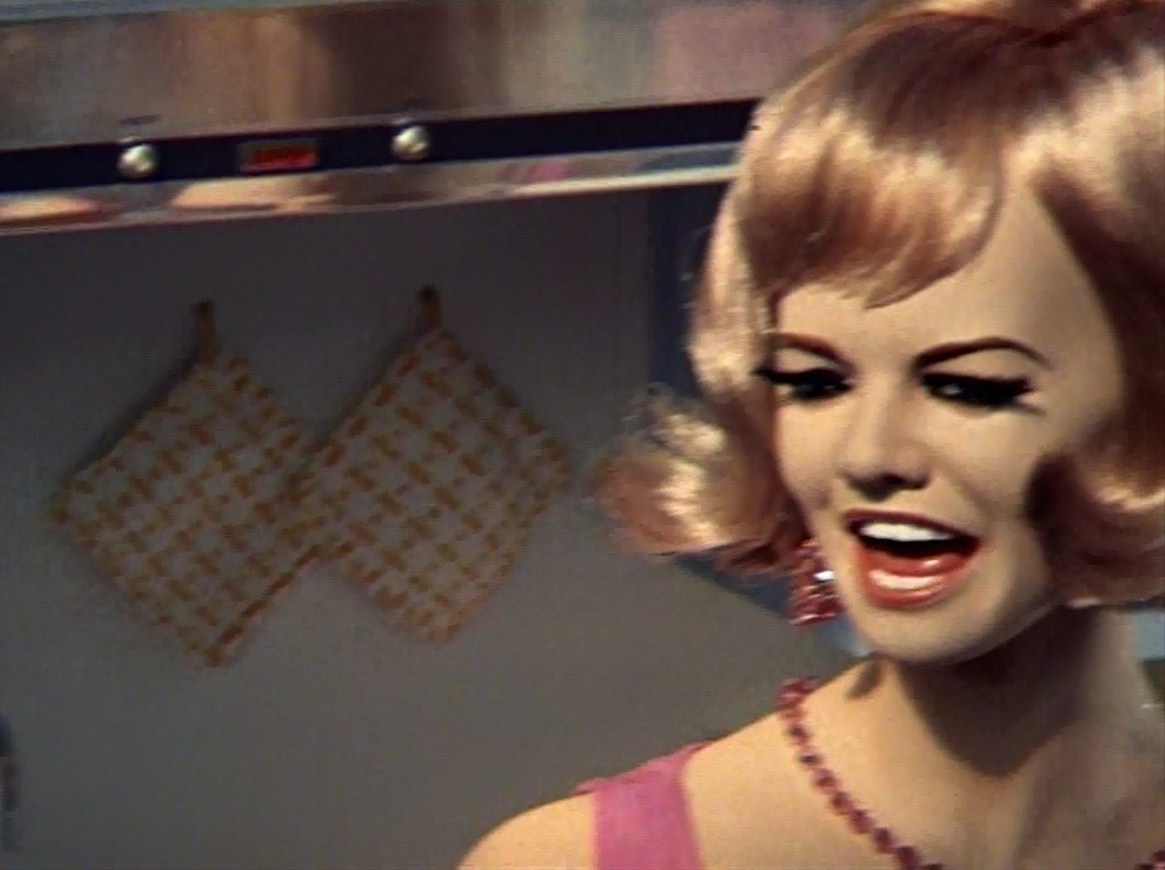The architecture of vision
The Girlfriends
I can say that it was done under the thrust of a smoething other than intelligence – naturally, whithin the limits that such a thing is possible.
And by the way, we should remember that love as a motive for suicide, in the film, is nothing more than the last straw in a boredom with living, an inability to connect with life, which are also Pavese’s motivations.
My experiences, my opinions, my own errors – these are what is most personal. They will all filter through my film in spite of me, if I am sincere. If the film succeeds, anybody will be able to extract them. If they cannot be perceived, it means that the film has failed. But it has failed on an aesthetic level, which is what I want to emphasize. So, when you criticise the character of Celia as confused, this is a criticism that I can share or not (and I do share), but it is legitimate.
L’Avventura
Some films are pleasant and some films are bitter; some are light and some are painful. L’Avventura is a bitter, often painful film. It is the pain of feelings that come to an end, or in which you catch a glimpse of the end at the same moment when they are born. All of this is recounted in a language that I have tried to keep stripped of effects.
“Maybe she simply drowned.” Claudia suddenly turns to him: “Simply?” They look at each other, dismayed. This is it. This dismay is the meaning of the film.
Despite the changes that which have occurred in the last few years, directors are limited by technology. Forced to respect a series of conventions which influence his style, the director has lost his freedom over the subject of the film, over his own reality. … This is alarmingly apparent in today’s films, and instances of interesting experimentation remain isolated incidents.
In a world that, in some respects, has become closer to normal, what counts is not so much – or not just – the relationship of the individual to his environment, but rather the individual per se, in all his complex and disturbing truth.
Nowadays, even the people who aren’t afraid of the scientific unknown are afraid of the moral unknown.
Life has a completely different pace, sometimes fast, sometimes extremely slow. In a story about feelings, like “L’Avventura”, I felt the need to link feelings to time. Their own time. The more times I see “L’Avventura”, the more I am convinced that I found the right rythm, I don’t think it could have had any other pace thatn the one it has.
It’s true that there are certain – let’s say – “musical” moments in the development of a story. They are the moments when you need to pull yourself away from reality. In those moments, music does have its pace. At another times, you have to use noises…
Blow-Up
My problem with Blow-Up was to recreate reality in an abstract form. I wanted to question “the reality of our experience.” This is an essential point in the visual aspect of the film, considering that one of its main themes is to see or not to see the correct value of things.
In Blow-Up, eroticism occupies a very important place, although the focus is often placed on a cold, calculated sensuality.
THe risque aspect of the film would have made filming in Italy almost impossible. Italian censorship would never have tolerated some of those images. Let’s not forget that, even though censorship has become more tolerant in many countries in the world, Italy remains the country of the Holy See.
As I have written other times in reference to my films, my narratives are documents built not on a suite of coherent ideas, but rather on flashes; ideas that come forth every other moment. I refuse, therefore, to speak about the intentions I place in teh film that, at one moment, occupies all my time and attention. It is impossible for me to analyze any of my works before the work is completed. I am a creator of films, a man who has certain ideas and who hopes to express them with sincerity and clarity. I am always telling a story. As far as knowing whether it is a story with any correllation to the world we live in, I am always unable to decide before telling it.
La Notte
I didn’t wirte La notte for Jeanne Moreau. Afilm should be written in complete isolation. The actors shouldn’t influence the writing.
We filmed without a producer, without money, and without food, often risking our necks at sea in the storms.
The Eclipse
The Eclipse is still a modern film in that its protagonists are people who do not believe in feelings – that is, they limit them to certain things.
I saw [the jeweler] Bulgari: he, too, walks around with a gun. He is right. What should he do? Kidnapping has become an issue that touches us personally…
It’s a special kind of language, which is based – and that was what really interested me – upon honesty. The stockbrokers have to be honest with each other. … If someone cheats, he will no longer work in the Stock Exchange.
The success of The Eclipse in Japan is explained by the very slow rythm of the film, broken only now and then by “outbursts”, such as the Stock Exchange sequences. The Japanese liked that a lot, and they already knew and loved Delon and Monica Vitti. Keep in mind, also, that the film “opens” with a song by Mina.
The girl is from Rome, deeply bourgeois, and therefore – how can I say it? – a bit a victim of certain moral principles. Therefore she is a little scared to let herlsef into that relationship. Nowadays, perhaps, this type of reticence would not exist. The conclusion of the relationship could be the same, but the relationship would probably be different. It would develop in a more candid and less reticent manner; with less modesty, I would say; with fewer drawbacks.
I will not watch The Eclipse again on TV because I never look back, I always look ahead. Because of this, I never make period films, and I do not make films about historical characters. Fellini knows how to do this very well.
Giuliana – and perhaps I dind’t explain this well enough in the film – tries to cut her life short by driving her acr into a truck. The “accident” that she talks about and confesses to (because she is perfectly aware of what she did) is a consequence of her neurosis, not its cause.
The Red Desert
I’m not against progress. But there are people who, by their nature, by their moral makeup, have to wrestle with the modern world and can’t manage to adapt to it.
The electronic music, a sort of transfiguration of real noises – especially in the first part of the film, the part about factories – finds a counterpart in the sounds that Giuliana hears.
While I was working on my first film, I felt the need to shoot some very long takes. Only afterward did I understand why.
In Red Desert, I wanted to highlight more the relationship between the characters and the world around them.
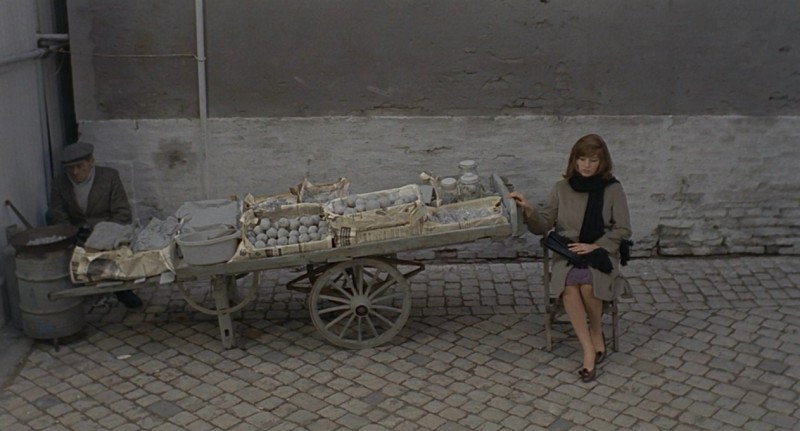
I realize that one always knows where one starts off, but very rarely where one is going to – my intention was to translate the poetry of that world, in which even factories can be beautiful.
I would like to make it lcear that it’s not her environment that causes her crisis: that’s just the trigger.
On the contrary, I think that if we learn how to adapt ourselves to the new techniques of life, perhaps then we will find new solutions to our problems.
– Is the robot in the little boy’s bedroom a good or an evil presence in his life?
– A good one, I think. Because if he gets used to that sort of toy, he will prepare himself for the type of life that is awaiting him. … Toys are the product of industry, which through them excersises its influence also over the education of young children.

I would like to emphasise one moment in the film which is intended as criticism of the old world. When the woman, in the middle of her crisis, needs help, she meets a man who takes advantage of her and her insecurity. They are the same old things that overwhelm her. Somebody like her husband would have acted differently: first he would have tried to help her then perhaps later – but as it is, she’s betrayed by her own world.

She may find a compromise, but the neurosis will stay with her forever. I wanted to hint at this idea of continuing sickness by the slightly unfocused images. She is in a static phase of her life. What will become of her? I’d have to make another film to find out.

What a question! Do you think it’s easy to answer something like that? All I can say is that our feelings have to change. “Have to” – I should say they are already changing, have changed.
– In science fiction novels, characters are never artists or poets.
– That’s true, it’s strange. Perhaps they think they can do without art. Perhaps we will be the last to produce completely superfluous things like works of art.

Yes, figuratively speaking, it is a less realistic film. That is to say, it’s realistic in a different way. For example, I used the camera lens to limit the depth of field, which is of course an essential element in realism.

I wanted the grass around the hut to be colored in order to accentuate the sense of desolation, of death. I had to give the landscape a certain truth: dead trees really are that color.
– And all those shots of obects during the conversation about Patagonia?
– It corresponds to a sort of “absent-mindness” on the part of the character. He’s tried of all that talking. He’s thinking of Giuliana.
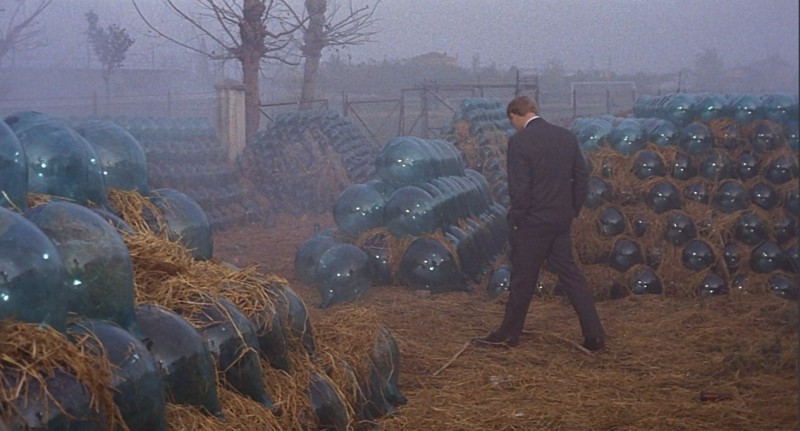
It’s odd. Here I am talking to Mr. Godard, one of the best and most modern directors today, and just a while ago I had lunch with Rene Clair, one of the greatest directors of the past. The conversation with him was rather different. He is worried about the future of cinema. We – I think you will agree – have faith in the future of cinema.
20110712-zoom-player-2011-07-12-23-02-19.jpg)
For me, the reason is: Color has, in modern life, a meaning and a function that it never had in the past. I am convinced that before long, black and white will truly become the stuff of museums.
This is also the last autobiographical of my films. … I told a story as if I were seeing it happen before my eyes. if there is still some autobiography, it is precisely in the color that can be found.
Finally, there is another reason why I consider “Red Desert” to be very different from my previous fils: It does not discuss feelings. I will go as far as saying that feelings have nothing to do with it. In this sence, the conclusions of my previous films here are taken for granted.
Why the title is “Red Desert?” … The explanation is simpler than it seems… Because it is about intuitive definitions, which assume their meaning and value only later.

Zabirskie Point
In fact I think that what our civilization and our generation represents and produces can be seen here on its highest and purest level as well as on its lowest and most brutal. If I had to sum up my impressions of America, I would list these: waste, innocence, vastness, povetry.

In the midst of this chaos of products and goods, of waste and povetry, acceptance and revolt, flows a current of continuous, tumultuous change. Europe felt to me like a far-off museum. I don’t mean Europe with its intellectual presumptions, its cynical illusions of knowing everything beforehand.
My relationship with America reflects the division of Americans into very distinct categories: on one camp are two-thirds of the population, irritating and unbearable people; the other third are wonderful people. The first group is the middle-class; the second one is today’s youth.

Cinema in America is less improvised, less original than in Europe. Everything is more bureaucratic and more mechanical. Americans are very tied to routine.

– In your films first comes the point and then the story; or does the story come first and then the point?
– First the story and then the point. For example, I only discovered the point of Blow-Up a month ago.
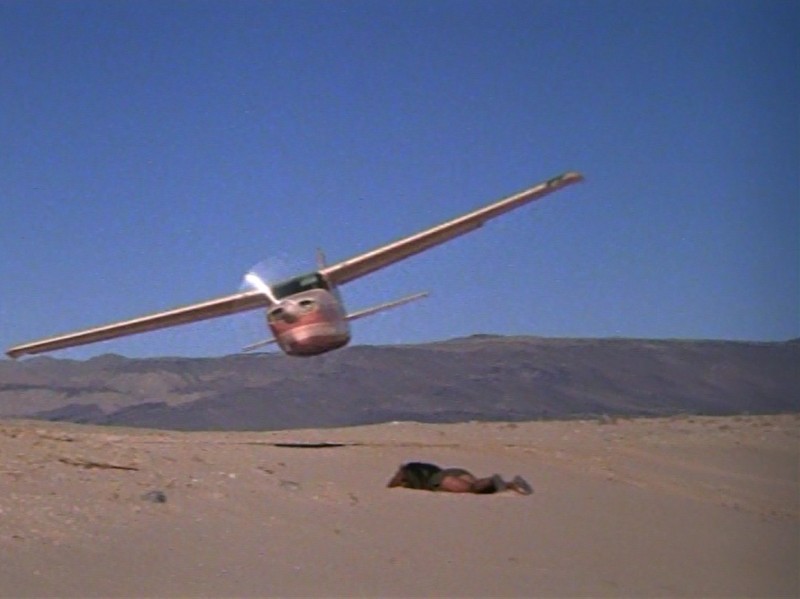
The Billboards are an obsession of Los Angeles. They are so strong that you can’t avoid them. Of course, there’s the danger of seeing Los Angeles as a stranger. To us the billboards are so contrary, but for people who live there they are nothing – they don’t even see them. I am going to show them in the film, but don’t yet know how.
It seems to me I’m seeing such a waste of money. It seems to be almost immoral. I feel bad sometimes. For instance, they threw away a piece of gelatin that we used and the piece was still new. There is also a waste of film. If I am shooting with two or three cameras and I need this camera only in the middle of the scene, in Italy I would start with that camera just at that moment. Not here. They start from the beginning. It is a waste of film! They are consumers. They are used to wasting something – goods, materials, food, everything. And I’m not used to this.
For one thing, he[Antonioni] tried to hire some black cameramen to shoot a sequence that takes places in a Negro ghetto but was unsuccessful because he couldn’t find any black men in the union. Some of the problems with the unions were also linked with age.
The Americans are so cool sometimes. They need to know exactly what they are doing. Sometimes they are like Germans – fastidious, precise. This makes me upset because I like to have people around me who are more spontaneous.

In short, I don’t believe that abstract cinema, as we conceive it today, is the route for cinema to take in the future. Making movies in a freer way means seeking greater and more personal involvement from the viewer.
Most filmmakers lie, I am deeply convinced of that. I think that you can count on the fingers of one hand the number of American directors who say what they really believe;… The best films are the ones made by the directors of intergrity, and they are very rare.
Blobs of color on the screen can indeed be pretty, but often they are just useless. I’m thinking now of “Boom!”, [Joseph] Losey’s last film. It’s the most pointless film I’ve ever seen. It’s the whim of a director who knows how to shoot, knows what cinema is. It’s so sparkling, elegant; the colors are used so gratuitously, and everything are superficially effective, that the film really turns out to be a conveyer of lies.

Actually, the subject matter and screenplay that I had originally written for that film were very different from what turned out to be the basis of the actual film. I had created a story which revolved around the figure of an imaginary poet who lived in the United States and his vision, his attitudes, were much more individual – I would almost say more abstract… It was a substantially different story, more introspective, perhaps more suggestive.

The most important axis of the film is its juxtaposition of reality and imagination;
Now, let us take for example the final scene, which provoked many contrasting reactions. Whell, in that scene I visualize the desire of a woman whose fiance has just been killed in an anonymous way, and for no apparent reason. It is her mental reaction that I’m showing, and I think it’s perfecty understandable that she would want the house to explode, to blow up.
But even in that particular case, the insistence on the explosion is due to the fact that it’s part of my aesthetic vision, an integral part of it.
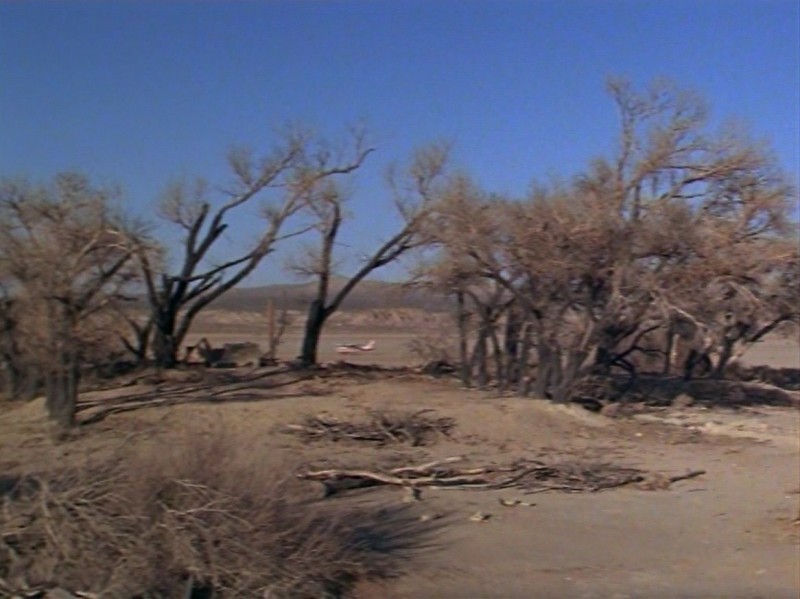
I would say that, overall, the European tradition is still more refined and more deeply rooted than the American is. But I would like to add that I think this holds true only as far as artistic expression and creative thinking is concerned; for, in the area of academic research and analytical criticism, I have to say that in America I have found quite a few people who are far above the European standard in these areas.

The Director and Technology
This is the modern way of looking at the world. Today everyone has less background than in the past. We’re freer. A girl today can go anywhere, just like the one in the film, with just one bag and no thoughts for her family or past. She doesn’t have to carry any baggage with her.
Today, many topics are off limits to us. Certain metaphysical dimensions, certain sensations are conveyed in cinema today only approximately, precisely because of technological limitations.
But just as with abstract art, technology too will only appear to simplify the task of the filmmaker, and only appear to open it up to everybody. In the end, you will see that those who have made real contributions to cinema will be very few.
Identification of a women
The two girls in are not two aspects of the same, ideal woman, even though in the film the ideal woman is indeed brought up.
There are three erotic scenes in the film. It’s the first time I’ve shot such scenes; I forced myself to do it, as they were necessary to describe the aristocratic character. I did shoot a love scene with the second girl, too, but I cut it out; her type of eroticism comes out in other ways.
The novelty of “Identification”, compared with my previous films, lies in the fact that there are no crises for the characters, but rather conflicts between them.
The heart of the story lies in this dialectic between the real and ideal characters, between the women in his life and the women in his mind. At a certain point they so overlap that the director – this isn’t made explicit, but you can guess it – is no longer sure whether he is looking for a women for himself or for his film.
Before this film, I gave too much importance to the setting. But now it’s become too easy to make pretty movies. Everybody is doing it.
Some very important things are going on in the world, and to a certain degree they are quite mysterious things. There is a sort of backlash.
– Speaking of woman, how has she changed in the last twenty years?
– I’m not a psychologist, nor a sociologist, but I think that women are clearer about what they want, they think more about themselves, and this has been troublesome to some men. You can see this in certain behavior patterns, certain gestures, certain expressions.
Mavi looks for freedom in failure. And for men, she is the most attractive character.
However, I should say that if there is anything in the film which is autobiographical it’s sex.
The difference betwenn the Europeans and the Americans lies in the fact that while the Americans live in daily contact with science, with technology, and with the future; the Europeans live with their own culture – especially the Italians and you in particular. In Eurpoe there isn’t the same proximity to the issue of science, which is nonetheless a constant presence in your films.
It’s true that children are so used to television that they are incapable of having an independent thought these days. They are completely conditioned, they study by computer as they watch television.
– When you and the other directors of your generation were younger, did cinema have any rival equivalent to what television is now?
– Radio. But it wasn’t as strong. Unlike television, which is very popular with young people, for the most part it was odler people who listened to radio; they stayet at home and listened. It’s a sort of mystery. I remember when I was a child, my parents’ bedroom was next to the living room; my mover listened to the radio and I always asked her to turn the volume down because I couldn’t get to sleep.
